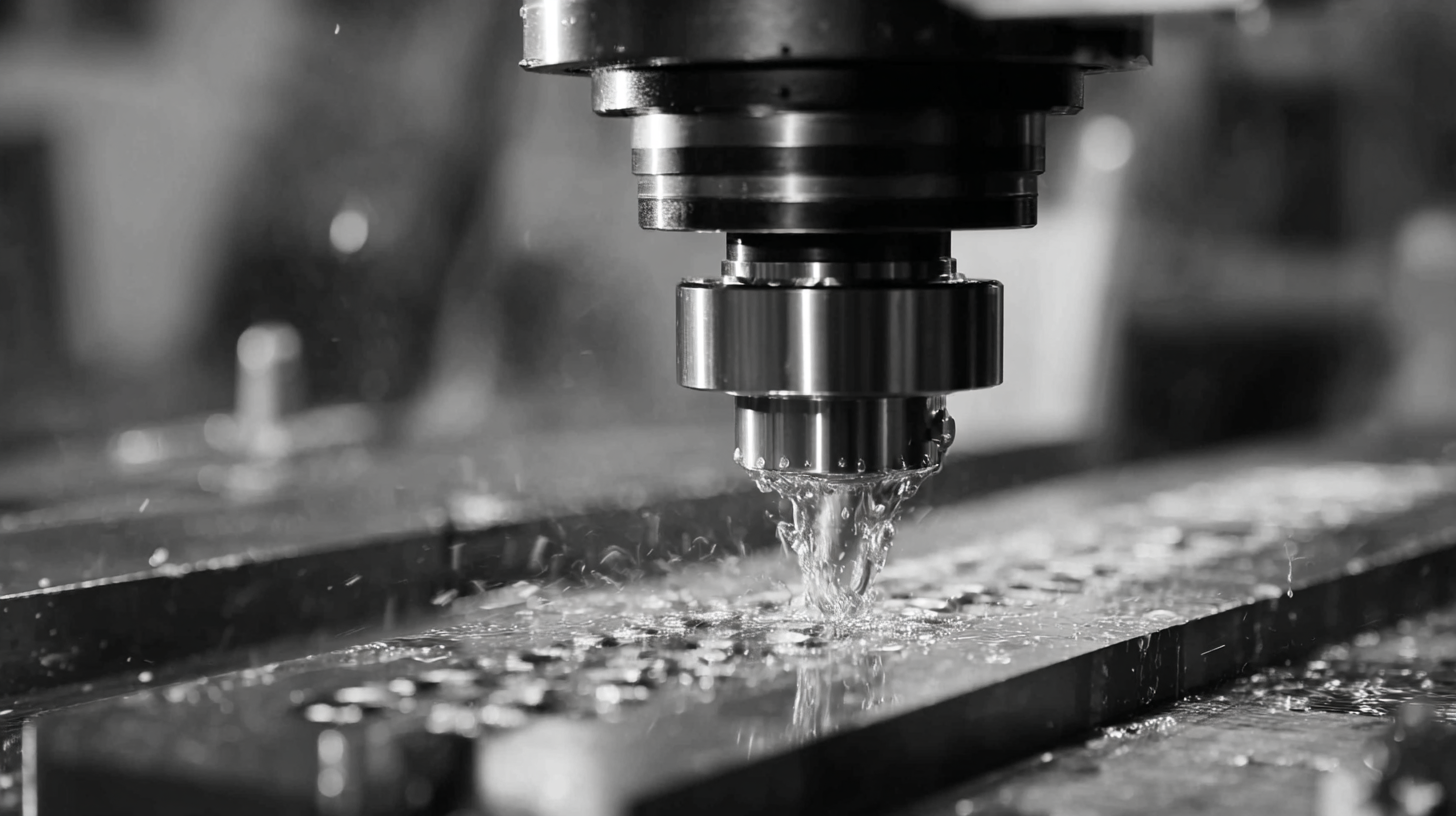
Unlocking the Potential of Best Factory Products with Comprehensive Technical Specifications for Global Buyers
In today’s rapidly evolving global market, the role of factory products is more critical than ever, as they serve as the backbone of various industries, from manufacturing to high-tech innovations. According to a report by McKinsey, the manufacturing sector is projected to grow significantly, contributing approximately $2.9 trillion to the global economy by 2030, driven by advancements in technology and a focus on sustainability. As buyers worldwide seek to enhance their supply chains and improve product quality, comprehensive technical specifications become indispensable. These specifications not only facilitate informed purchasing decisions but also ensure alignment with international standards. By unlocking the potential of best factory products through precise details and insights, global buyers can navigate complex markets, respond to emerging trends, and ultimately drive their businesses toward success.

Understanding the Importance of Technical Specifications in Product Selection
When it comes to selecting products from the best factories worldwide, understanding technical specifications is paramount. Technical specifications detail the characteristics and capabilities of a product, serving as a direct line of communication between manufacturers and global buyers. These specifications can include material compositions, dimensions, performance metrics, and compliance with industry standards. By deciphering this information, buyers can make informed decisions that align with their needs and expectations.
Moreover, the emphasis on technical specifications helps to mitigate risks associated with product defects and compatibility issues. Comprehensive specifications allow buyers to compare offerings from different manufacturers effectively, ensuring that they choose products that meet their quality and functionality standards. As globalization continues to expand markets, the ability to understand and utilize technical specifications will empower buyers to unlock the potential of high-quality products, driving innovation and efficiency within their operations.
Unlocking the Potential of Best Factory Products with Comprehensive Technical Specifications for Global Buyers
| Product Name | Category | Material | Dimensions (cm) | Weight (kg) | Technical Specifications | Price (USD) |
|---|---|---|---|---|---|---|
| Industrial Pump | Pumps | Cast Iron | 50 x 30 x 30 | 25 | Flow rate: 1200 L/h, Power: 2 HP | 450 |
| CNC Machine | Machinery | Aluminum | 200 x 100 x 150 | 300 | Max speed: 2000 rpm, Precision: ±0.01 mm | 15000 |
| Industrial Refrigerator | Refrigeration | Stainless Steel | 150 x 80 x 200 | 200 | Cooling capacity: 1500 W, Energy efficiency: A++ | 3500 |
| Electric Forklift | Material Handling | Steel | 120 x 80 x 210 | 1800 | Load capacity: 2000 kg, Battery life: 8 hours | 25000 |
Key Features to Look for in Best Factory Products
In the fast-evolving manufacturing landscape, global buyers must prioritize specific criteria when assessing the best factory products. Today’s production environments are increasingly driven by data, aligning with the insights from recent industry reports. By 2025, data-driven enterprises are expected to harness advanced analytics and artificial intelligence to enhance operational efficiencies, paving the way for more informed purchasing decisions. Buyers should look for products that integrate seamlessly into these data ecosystems, enabling real-time tracking and performance metrics.
Comprehensive technical specifications play a vital role in evaluating factory products. Features such as automated flexibility and additive manufacturing capabilities are essential for modern production. For instance, surveys indicate that companies utilizing 3D printing for functional parts are seeing a 35% reduction in production time. Moreover, with the rise of automated and intelligent supply chains, tracking applications utilizing real-time scanning can significantly improve the management of resources, enhancing overall supply chain resilience. As competition intensifies, adopting products with robust technical features will be crucial for businesses aiming to stand out in the factory of the future.
Key Features of Best Factory Products
How Comprehensive Specs Enhance Buyer Confidence and Informed Decisions
In today’s global marketplace, buyers are increasingly seeking products that not only meet their needs but also come with transparent and detailed technical specifications. A recent report from the International Organization for Standardization (ISO) highlights that 62% of buyers prioritize product specifications when making purchasing decisions. Comprehensive technical specifications provide vital insights into product performance, safety, and compatibility, which enhance buyer confidence significantly.

Moreover, research by MarketsandMarkets indicates that robust product specifications can lead to a 35% reduction in buyer returns, as informed purchasing minimizes mismatches between consumer expectations and product realities. Buyers who are confident in their choices are more likely to invest in high-quality factory products, fostering long-term business relationships and boosting overall satisfaction. By making detailed technical specifications readily available, manufacturers not only cultivate trust but also empower buyers to make informed decisions that are beneficial for both parties in the supply chain.
Case Studies: Successful Implementations of Products with Detailed Specifications
In the highly competitive global market, the significance of detailed technical specifications cannot be overstated. Case studies of successful implementations serve as testament to the transformative power of well-defined product specifications. For instance, a leading electronics manufacturer utilized comprehensive specifications to enhance product compatibility across various platforms. This meticulous attention to detail not only streamlined the development process but also reduced time-to-market, ultimately boosting sales in diverse international markets.
Another noteworthy example comes from the automotive industry, where a company integrated advanced specifications into its production line to improve quality control. By leveraging precise technical data, the manufacturer was able to significantly decrease defects and increase customer satisfaction. As a result, they not only improved their market reputation but also fostered long-term relationships with global clients who valued quality and reliability. These case studies illustrate that when buyers are presented with robust technical specifications, it not only aids in informed decision-making but also paves the way for successful implementation and collaboration.
Challenges Global Buyers Face in Accessing Technical Specifications
Global buyers often encounter significant challenges when navigating technical specifications for factory products.
One major hurdle is the variability in specification formats across different manufacturers and regions.
This inconsistency can lead to confusion and misinterpretations, making it difficult for buyers to compare products effectively.
Additionally, language barriers and limited access to localized technical documentation can further complicate the purchasing process,
as buyers may struggle to understand critical information about product functionality and compliance.
To overcome these obstacles, buyers should prioritize thorough research and effective communication.
Engaging directly with manufacturers and requesting detailed documentation can help clarify any uncertainties.
Utilizing translation tools or professional services can also aid in understanding technical specifications in different languages.
Another helpful tip is to establish a checklist of essential specifications that align with your needs before engaging with suppliers.
This checklist will serve as a vital reference point and ensure that you ask the right questions during negotiations.
By being proactive and organized, global buyers can significantly enhance their ability to access and utilize comprehensive technical specifications,
ultimately leading to more informed purchasing decisions.

